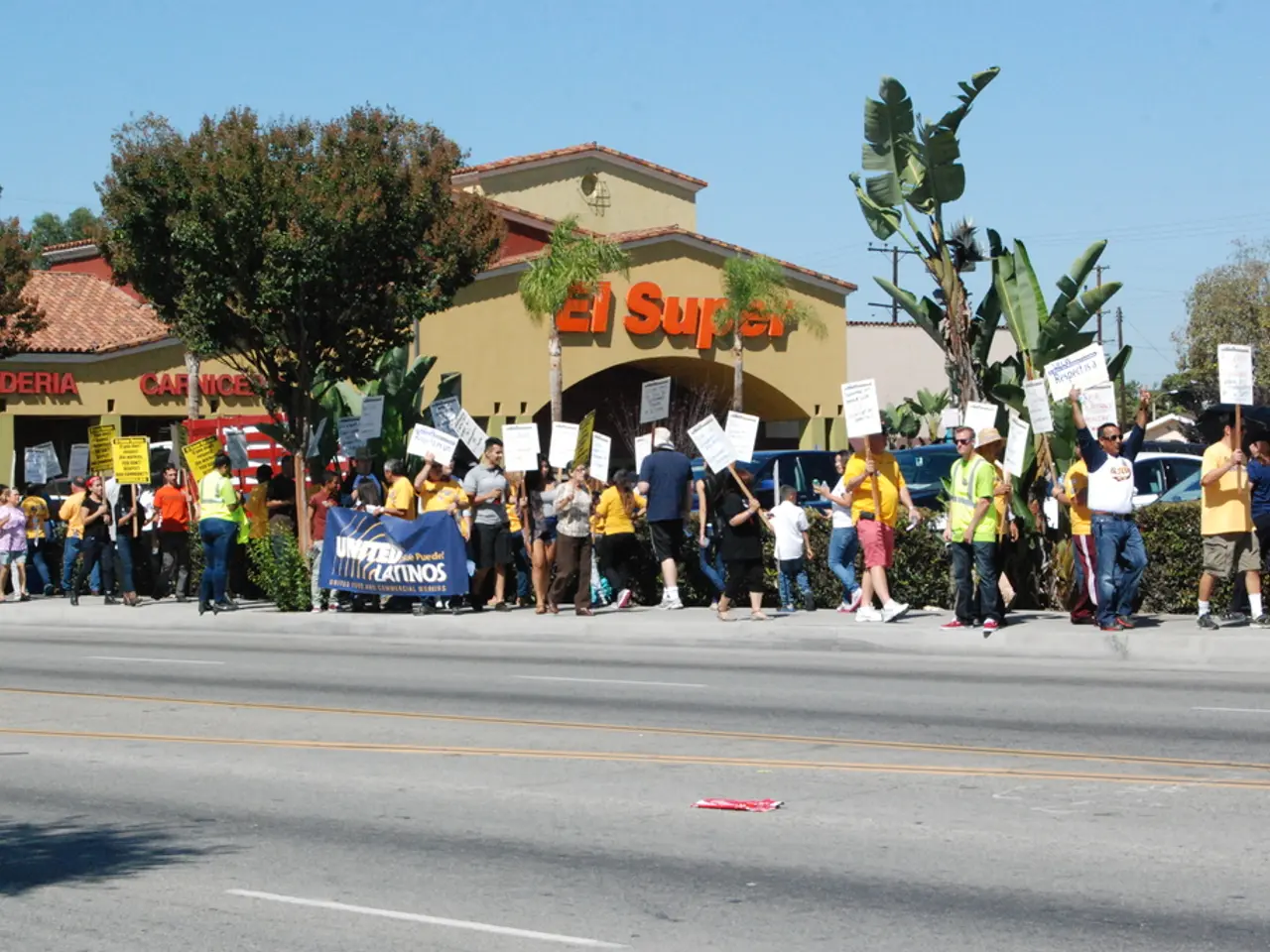Opposition Plans Boycott of Bihar Elections; Election Commission States 67.4 L Voters Absent from Voter Lists
Controversy Surrounds Special Intensive Revision of Electoral Rolls in Bihar
A political storm is brewing in Bihar as the opposition parties, led by RJD leader Tejashwi Yadav, have expressed concerns over the Special Intensive Revision (SIR) of the electoral rolls. The controversy revolves around allegations that the process is politically motivated to benefit the ruling National Democratic Alliance (NDA) by deleting large numbers of voters who are unlikely to support it.
The Election Commission of India (EC) insists that the SIR is lawful and constitutional, intended solely to cleanse the rolls by removing ineligible names, including duplicates, dead voters, and foreign nationals improperly registered. However, the opposition parties argue that the process and requirements are discriminatory and exclusionary, with those not listed in the 2003 electoral rolls required to provide additional documentation.
The EC has been criticized for excluding Aadhaar and certain other ID cards, fearing misuse by illegal immigrants from neighboring countries, particularly in border districts. Over 35 lakh names are expected to be removed from the rolls following verification, including many with suspect documentation and foreign nationals from Nepal, Bangladesh, and Myanmar. This could significantly alter electoral demographics, with opposition leaders warning that even a 1% deletion per constituency could have a substantial impact.
The controversy has reached the Supreme Court, which is scrutinizing the legal basis and methodology used. The EC has provided deleted voters' data to political parties but no direct challenges have been made so far. The Supreme Court has ordered the EC to file detailed replies and share relevant data with NGOs for transparency.
The SIR could potentially remove millions of voters, including migrants and marginalized groups who may favour opposition parties. This could significantly influence voter turnout and election outcomes. Tejashwi Yadav has expressed concern that many people from Bihar living in other states for education or work might have their names struck off the voters' list due to not being found at their registered addresses in Bihar.
As the EC prepares to invite claims and objections from August 1, Tejashwi Yadav has continued to protest against the SIR by attending the Assembly dressed in black. The EC claims to have covered 99% of the state's 7.9 crore voters under the SIR, but Yadav alleges that the EC is trying to help the ruling coalition through the SIR, citing various anomalies and the ruling NDA's silence.
Meanwhile, the Congress, an ally of the RJD, has said it will oppose the Tughlaqi process of the SIR in Bihar at all forums and has left open all options for the I.N.D.I.A bloc. The EC has reported that 21.6 lakh deceased electors and another 31.5 lakh who have permanently migrated have been identified. An FIR has been lodged against independent journalist Ajit Anjum in Begusarai for his series on the SIR.
As the Assembly elections in Bihar draw near, the controversy surrounding the SIR continues to dominate the political discourse, with calls for greater transparency and fairness. The matter remains under judicial review with ongoing political protests and demands for a thorough investigation.
The SIR controversy in Bihar, a matter of policy-and-legislation and political news, has raised concerns about its fairness and potential for exclusionary practices, leading to debates in general-news forums. The opposition argues that the SIR's requirements, particularly those excluding certain ID cards and targeting voters not listed in 2003, may negatively impact certain voter demographics, including migrants and marginalized groups, thereby affecting crime-and-justice outcomes.








